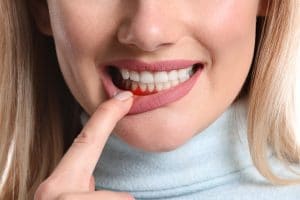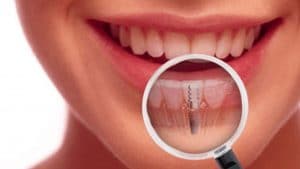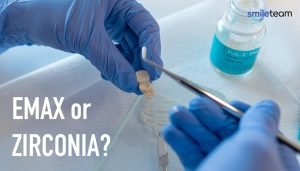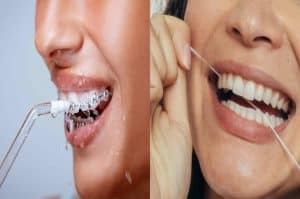If you’re thinking about getting a rhinoplasty, you should be cautious about what you should and shouldn’t consume afterward. Your food after nose surgery is critical since it has a direct impact on your recovery comfort, as it can minimize or increase discomfort.
While it may appear to be a straightforward task, understanding what to eat and what to avoid can be challenging. That is why we have written this post to give you comprehensive advice on your rhinoplasty diet.
Why Do You Need to Know What You Should Eat After Rhinoplasty?
Your rhinoplasty diet surgery is extremely important since it may make your recovery time more pleasant and expedite your recovery. It can help you get the most out of your rhinoplasty and reduce post-operative complications. As a result, it’s critical to understand which foods can aid your body’s recovery following surgery. That is because the appropriate diet supports maximum healing.
Furthermore, the body finds it difficult to digest food after rhinoplasty for a variety of reasons. Including general anesthetic, narcotic pain medicines like opioids, and electrolyte or fluid imbalance. As a result, many people have constipation following rhinoplasty, and the best method to avoid and treat it is to eat the correct foods.
What Your Rhinoplasty Diet Should Be Before Surgery?
Vitamins and Minerals
Three weeks before surgery, begin a balanced multivitamin regimen under the guidance of your doctor. Before surgery, you should take the recommended quantity of vitamins, but not too much of any one vitamin, with the exception of vitamin C. According to research, a high vitamin C consumption might help wounds heal quicker after cosmetic surgery. However, if you take too much vitamin E, you may experience greater bruising and bleeding before and after surgery.
Vegetables and Fruits
A healthy, balanced rhinoplasty diet often includes fruits and vegetables. They are, however, ineffective when it comes to prepping for surgery. Patients are advised to avoid eating high-fiber meals for 24 hours prior to surgery. Fruits, vegetables, and whole grains take longer to digest than other foods, so it’s crucial to keep your stomach empty before surgery.
Protein
Protein is the body’s second-largest building block and is required for tissue growth and repair. Proteins make up our organs, hormones, red blood cells, immune system, and enzymes. Protein consumption is required to satisfy daily demands, prepare the body for rhinoplasty, and aid tissue recovery.
What Your Rhinoplasty Diet Should Be After Surgery?
Avoid Eating Chewy Foods
Place your palm on your nose while chewing a very chewy meal, such as a steak or even a piece of gum, before surgery. The chewing process causes your nose to shift slightly. While a little movement is good under normal conditions when your nose recovers following surgery. However, you want it to be as still as possible to decrease the risk of problems. Remember that you are not restricted to a soft, mushy rhinoplastydiet for weeks following surgery.
Soft Meals
You can feel peckish when you arrive home following surgery, or even when the anesthetic or sedative wears off. Soft, gentle, or bland meals are normally recommended shortly after surgery. Choose from yogurt, oats, or a warm soup. Depending on how queasy you are, you may want to keep to clear liquids following surgery in case eating causes you to vomit. Continue eating soft meals for a few days following surgery, or until you feel well enough to experiment with new textures.
Fiber
Although you should stick to soft-ish meals during the first few days following rhinoplasty, it’s critical to obtain enough fiber in your rhinoplasty diet. Constipation is frequent following surgery, due to a combination of drugs, not moving about as much as normal, and eating a restricted diet. You should continue to take the medications suggested by the surgeon and minimize your physical activity. You may assist things along with increasing your fiber intake. Soft fruits like peaches and berries, as well as oatmeal, extremely well-cooked vegetables like carrots, and whole-grain breads, are high in fiber.
Avoid Caffeine and Alcohol
Alcoholic beverages and caffeinated beverages, such as coffee or soda, should be avoided for at least a few days after your surgery. Alcohol thins the blood and increases the risk of bleeding after surgery. It also raises your chances of developing a hematoma, or a collection of blood beneath the skin, and can exacerbate swelling. Caffeine can raise blood pressure, which can be dangerous for certain people. If your surgeon strongly recommends against consuming coffee or any other caffeine-containing beverage after rhinoplasty and you should follow your rhinoplasty diet.
After Rhinoplasty, How Long Should You Follow The Diet Plan?
The recuperation period following a rhinoplasty treatment usually lasts one week.It can last up to two weeks in some situations. Therefore it’s crucial to stick to this diet throughout that time. After that, you can gradually return to your regular diet.
Caffeine and alcohol should be avoided for at least 6 weeks following your rhinoplasty. It is also critical that you refrain from smoking following your operation.Most importantly, you should be aware that we have only discussed general dietary guidelines to follow during your rhinoplasty recovery period in this article. However, because each patient is unique, don’t hesitate to consult your doctor for more specific dietary guidelines for your rhinoplasty diet.
For more information on this, visit our Smile Team website.
You can read our previous article from https://smileteamturkey.com/blog/hair-transplant-in-summer/.






